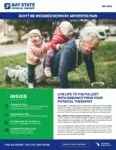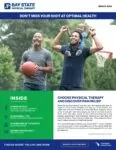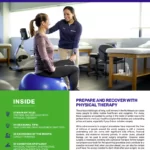About Medial Collateral Ligament (MCL) Sprains
The medial collateral ligament (MCL) is an important ligament that checks the side to side sliding of the femur (thigh) bone on the tibia (shin) bone in the knee. This ligament can be injured with sports or falls, especially with blows to the outside of the knee while the foot is planted on the ground. It is common for the MCL to be injured along with the medial meniscus.
The MCL can be sprained. Sprains are classified according to their severity, with grades I through III. Grades I and II are often treatable without surgery, while grade III is a complete tear and typically requires surgery.
With a sprain, the ligament is overstretched and micro-tearing results, causing pain and inflammation. Depending on the severity of the sprain and joint stability the potential for future injury can increase.
In rare cases, grade III MCL tears may require surgery to repair. Physical therapy is vital to rehabilitation after this surgery. Recovery does take time and the goal is to protect the surgical site, maintain joint stability while getting returning to walking and eventually running.
How physical therapy helps:
Our physical therapists work with patients of all ages especially those who have sustained MCL tears through sports activities. We work closely with your physician to examine the stability of your knee after the MCL injury. There are specific tests that we perform to assess the stability of the ligament and to determine the best course of action to maximize your recovery. Most MCL sprains, regardless of their grade, can be rehabilitated without the need for surgery and our physical therapists will discuss your options.
If surgery is needed for your recovery, rest assured that you are in the right hands for your rehabilitation. We work closely with your surgeon’s rehabilitation protocols. The priority is to manage your pain and swelling after surgery and gradually increasing your range of motion in the knee per your post-surgery protocol.
As time progresses, we work with you to regain your strength, improve joint stability, resume walking normally, and eventually return to advanced movements including running. Call Bay State Physical Therapy today to discover how we can help you bounce back after a MCL tear.





